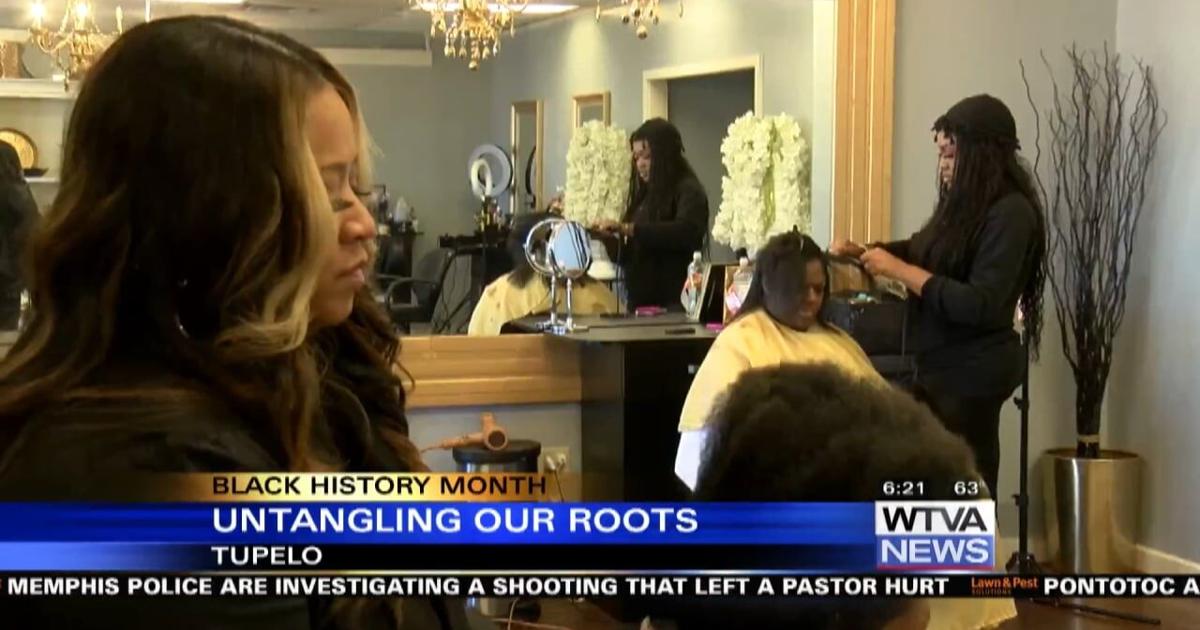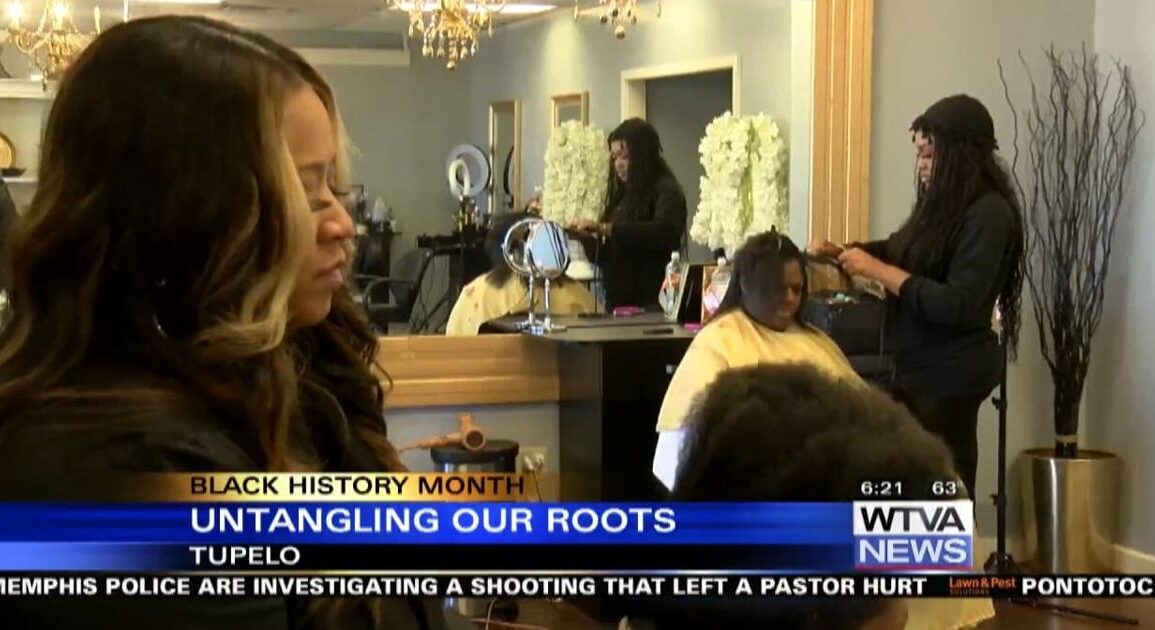
WTVA’s Michelle Martin works through the history of African American history for WTVA’s Black History Celebration.
TUPELO, Miss. (WTVA) – From afros and locs to curls and freshly pressed kinks, hair has been an important part of black history for decades.
Hair and what is considered as socially acceptable has been apart of the conversation for years.
It has also led to a lot of pain and frustration for black men and women.
Chandra Pannell is the owner of CROWNS in Tupelo.
She makes it her mission to help black women and men embrace their natural hair.
“These are kings and queens and we want them to love what God has given us, whatever your loc or coil pattern is, we want you to embrace it,” Pannell said.
A hair salon, especially in the Black community, makes me think of a place where confidence is built and history is deeply rooted.
Despite society’s expectations, many Black women are learning to embrace their natural hair.
So, what is natural?
Natural hair is free of chemicals such as temporary straighteners, better known as relaxers.
“A lot of natural hairstylists have bloomed because they’re trying to educate young people or anybody that wants to be natural,” Pannell added, ” whatever you decide, it’s your choice.”
A choice that was not deemed socially acceptable once before.
Studies show Black women with natural hairstyles were perceived to be less professional, less competent, and less likely to be recommended for a job interview.
That is compared to White women with either curly or straight hairstyles, and black women with straighten hairstyles.
“We shouldn’t be judged by our hair, we should be judged by the work we do,” Pannell emphasized, “That’s what should be looked at.”
As for solutions, some have pushed for legislation to stop hair discrimination.
The CROWN Act, which stands for Creating a Respectful and Open World for Natural Hair, is law in 23 states with legislation pending in many others, including Mississippi.
As for Pannell, she says she will continue to stress hair care, self-care, and inclusivity at her salon.
” Those are our kings and queens and when they come in here, we want to embrace them and embrace what God has given them and that’s them,” she said.
This post was originally published on this site be sure to check out more of their content.








